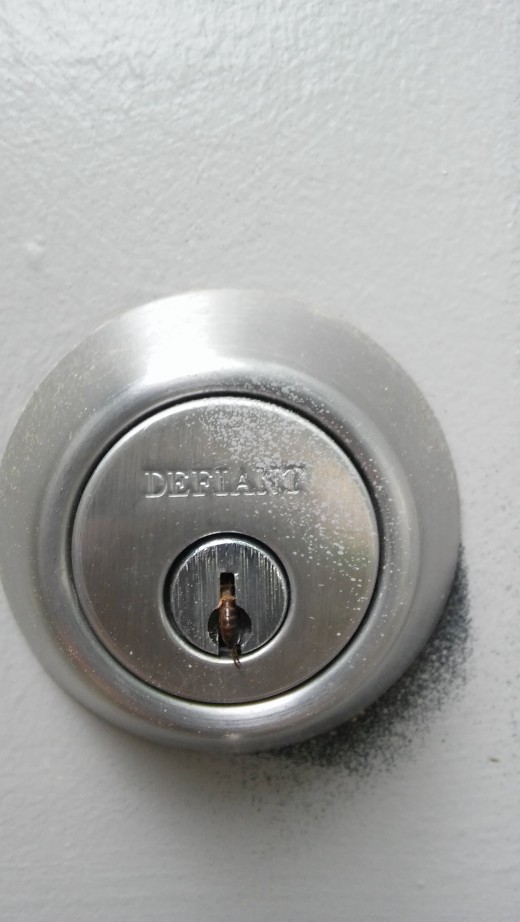The Cost: Doorbell Cameras and the Psychology of Fear

What are you frightened of? For most people, it is a loss of safety. Nowhere is this more apparent than in the popularity in recent years of Doorbell Cameras. Although few like to consider it, material objects seeming so important in one’s own life, upon death simply become trash for someone else to deal with. A message we hear again and again through marketing and news stories is of course during life another person must want to steal property from you, those objects one is having delivered when one is not home will definitely be taken by a bad person. More than anything, the latter is especially contemporarily relevant with the rise of online purchasing and shipping of products. As an aside, this may easily be mitigated by shopping locally. The convenience of online shopping can either be seen as a cementing of globalization (which believe it or not may be a good thing) or it may be viewed as the destruction of the local community (jobs lost from the closure of small local retail outlets who can in no way compete with the pricing of larger companies who are able to buy products in vast quantities for resale). Remember what Walmart did to local communities? This shift of stability offered the perfect opening for products whose sole purpose was to alleviate fear and support the illusion of control.
This isn’t the first time a product has been marketed for the sole purpose of assuaging fear, and it won’t be the last. Fear of loss of comfort and protection is one of those conditions hard wired into us as a species. ‘Mine’ draws a line in the sand between the perceived inner world and the outer world. From this stems a need to control not only the apparent controllables, but also random happenings and any other events which may lead to loss; risk management at a very personal level. Even though Doorbell Cameras are considered a realistic way to curtail crime, the owners and installers of these devices often violate ethical considerations, both at a personal level and at a social level.
Reasonable expectation of privacy is a topic we all assume to be for our own benefit and as a deterrent to crime. Yet without notifying those being filmed or photographed, we may be breaking laws. In most states it is only legal to film one’s own front door. If a neighbor’s home, particularly the inside of said home, is in the video the owner of the camera could be breaking the law due to the cone of visibility. They must procure the neighbor’s consent to be filmed. Yet, such considerations are rarely valued when doorbell cameras are installed and used. The fear of personal loss trumps others’ reasonable expectation of privacy.
Playing off fear
Although crime rates have been steadily dropping, the illusion that they are on the rise is presented daily by news outlets, focusing on isolated crimes, as well as the makers of security devices. The short term result of this is obviously profits for the companies making such devices. The long term results are a bit more troublesome upon consideration. ‘Mean World Syndrome’ as it is called instigates not only conscious reactions to perceived threats but also subconscious reactions which unfortunately not only influence how people view their neighbors and other community members but also can be passed on to new generations, genetically and environmentally, irrationally giving them someone to hate and direct their fears at. Though born of illusion, these attitudes can lead to real world consequences as people respond to events either through an emotional amplification born of fear, thus over reacting sometimes violently, or by completely disconnecting, unable to act appropriately when another human is violently attacked in their presence. Part of taking responsibility is admitting the illusion of fear for what it is rather than reacting on and teaching others to do the same.
Emotional responses to fear originating at the local level have become more intrinsic within social structures themselves, a magnification of shared responses. Entire groups of people across America, as well as many other countries across the world, have come to raise children to believe nonexistent fears are real. This has created a feedback loop of more fear feeding the need to purchase more products to alleviate that fear. Fear of loss ties directly to commodity fetishism. In a manner of speaking, when someone steals from us they are taking our very souls. The very consideration that an external material object is somehow tied directly to one’s identity is exemplary of the false concept ‘image is everything’. Some ideologies consider the things possessed will one day possess the possessor. There are real solutions to this. Get to know your neighbors and in doing so, actually talk to them, don’t just swap niceties. The need to create and live in a tightly knit community offers a degree of protection the illusions of protection through purchased products can never provide. Shopping locally not only prevents the collapse of local communities, as long as enough consumers do it, but also further strengthens the bonds between members of the community.
Fear will always be with us, and that’s not necessarily a bad thing. It keeps us safe and aware in real world circumstances. Through careful consideration and appropriate reactions to real fears versus imagined ones we may find the world’s not as scary a place as some would have us believe.
© 2019 D A Moore







